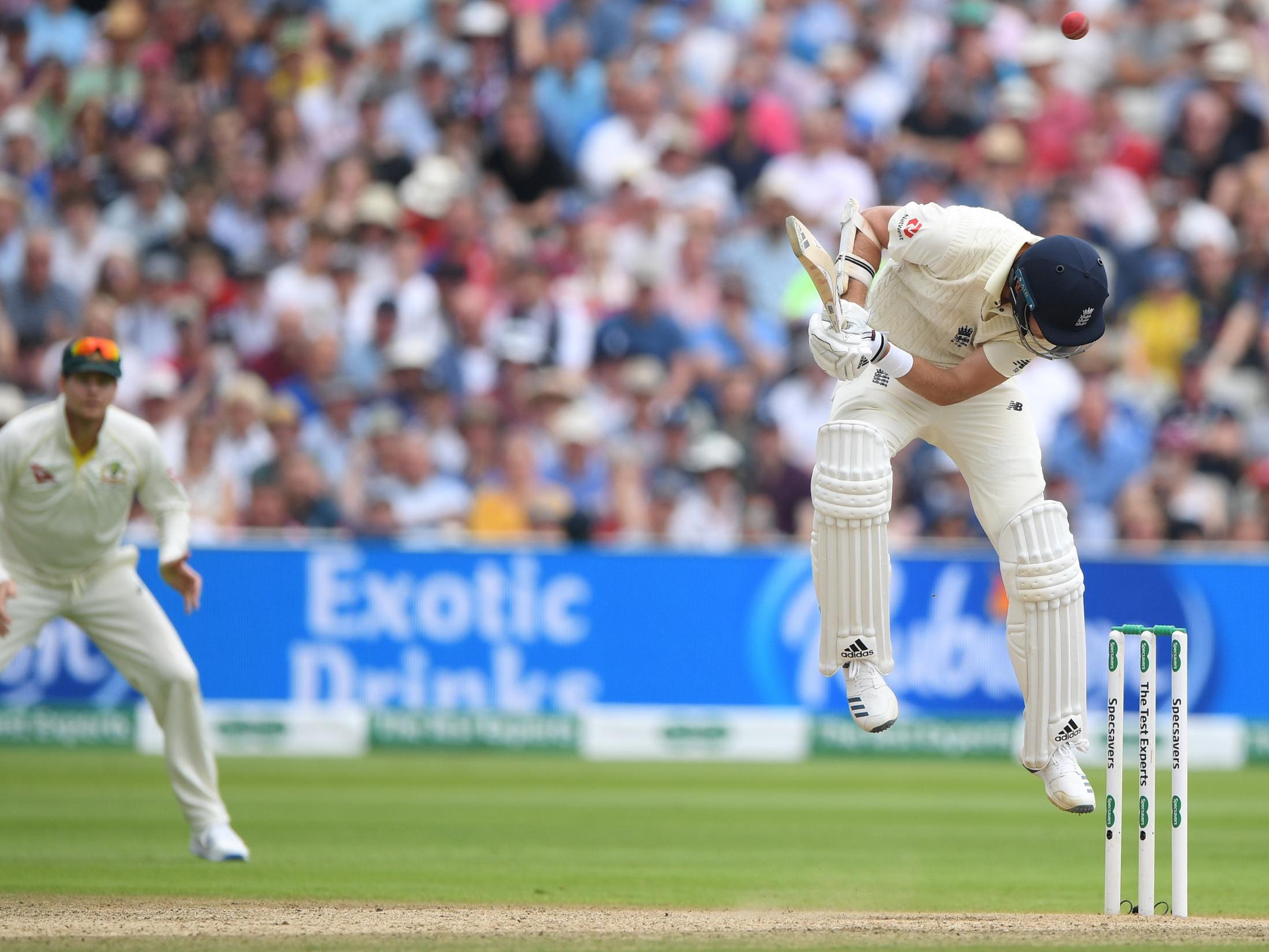Ashes 2019: Steve Smith key to series outcome as England and Australia's exchanges threaten to mirror drama of 2005
Everything that happens from here is determined by the progress or otherwise of one man: Steven Peter Devereux Smith
There is a joke that Al Gore would reportedly tell when showing people around the White House in his eight years as the Vice President of the USA. It ran that when looking at the seal of the office, if you close your left eye and squint really hard and tilt your head, it reads a lot like President of the United States. Well, if you squint really hard and tilt your head, this Test match looks a lot like one that might have been played during the epic 2005 Ashes series.
Specifically, the volatility in progress both teams have made, a wicket falling or a partnership stitched together at every necessary juncture to prevent a side pulling away. The frenetic burst of wickets on day one to get the party started, the astonishing individual performance, the determined runs of a veteran. Then England’s unlikely centurion, periods of distinct fortune both ways, two hardy fightbacks with the ball and a second rally from bowlers when batting.
But for all those welcome early comparisons, there is one profound difference that will deny this series ever competing with 2005, even if the results turn out to be a carbon copy. Then, two teams of legitimate champions took the field. Not every participant was a superstar, but there were more than enough – a perfect storm; old and new matchwinners everywhere. This isn’t that, not for Australia’s batting. They have Steve Smith. There is Warner too, and others who have world-class tendencies, but for the remainder of this Test, they have Smith.
From Australia’s position, if Smith is there for three hours on day four, with the same type of support he received on Saturday’s evening session from Usman Khawaja and Travis Head, they will have turned a 90-run first innings deficit into a lead near enough to 200. From England’s, if they can get rid of him early on Sunday, they’re all-but skiing downhill to a one-nil series lead. It’s so rare that a Test’s fortunes can rest so heavily on one innings that, at time of writing, is worth 46 runs, but that is the binary state of this game right now.
Earlier, Tim Paine couldn’t have realistically imagined a better start to his weekend. On exactly 50 and looking so daunting, Ben Stokes gave way to Pat Cummins – rewarded for relentlessly working his way back into the game after a poor start the day before. That incision made, Nathan Lyon’s two wickets in an over with contrasting delivery points – ragging one at Rory Burns then duping Moeen Ali with the one that doesn’t turn – was a timely reminder that Australia’s best finger spinner gets to bowl last.
When Jonny Bairstow acquiesced to Pete Siddle, England were eight down with a lead of 16. They’d blown it. But in keeping with the pattern of twists coming when the game needed them most, Chris Woakes was joined by Stuart Broad and Australia lost their way across their 74-run stand.
Whether it was the decision of the captain or the quicks, they elected not to target Broad with a barrage of short-pitched bowling, which has been a well-documented vulnerability for the England star since copping a whack to the head back in 2014. Four short balls came his way in the first 30 he faced, but after that the pressure was released with overs even coming from Smith himself.
When Cummins returned to the attack, he didn’t have a short leg as Broad prodded a bouncer there from his 52nd ball. Deciding that enough was enough, he then bombed him seven times in a row, the final of those finally doing the trip – Broad caught at long leg.

According to CricViz’s WinViz measure, Australia’s chances had slumped from 31 to 11 per cent while the two were together, which is where it stayed when David Warner and Cameron Bancroft both fell with Australia still deep in the red. Then Smith walked out. With Usman Khawaja, they made a decision to up the tempo and make life difficult for Joe Root who doesn’t have Jimmy Anderson to call upon.
Moeen got Bancroft early but he also took plenty of tap, going for 47 from nine overs, never allowed to settle. Together, they put on the fastest partnership of the game: 48 in 55 deliveries. Travis Head picked up where Khawaja left off, his unbeaten union with Smith 49 when bad light and rain denied the final 25 minutes.
Given that not long before the close Ben Stokes hit Smith in the head with a 90mph bumper, it was a well-timed early bath. As Bairstow was heard saying over and again through the stump mics, England believe they can “have them five down in a hurry.” But when he is saying that, he is only referencing Head and next man in, Matthew Wade.
None of this is a secret – the home side knows, Paine’s dressing room knows, anyone who has watched these sides play over the last four years knows. Everything that happens from here is determined by the progress or otherwise of one man: Smith. That might not quite be the stuff of 2005 but it does make for a compelling fourth morning.
Join our commenting forum
Join thought-provoking conversations, follow other Independent readers and see their replies
Comments
Bookmark popover
Removed from bookmarks